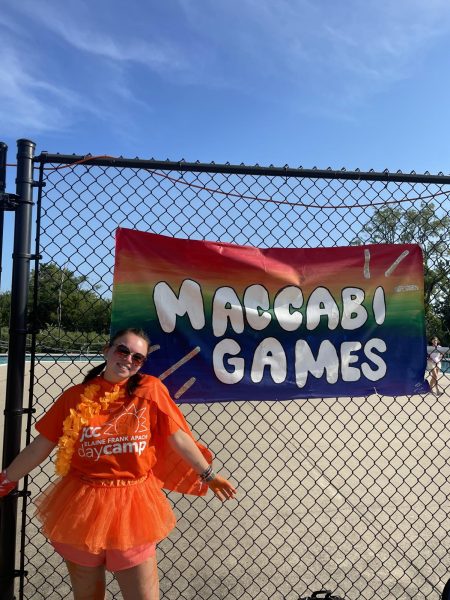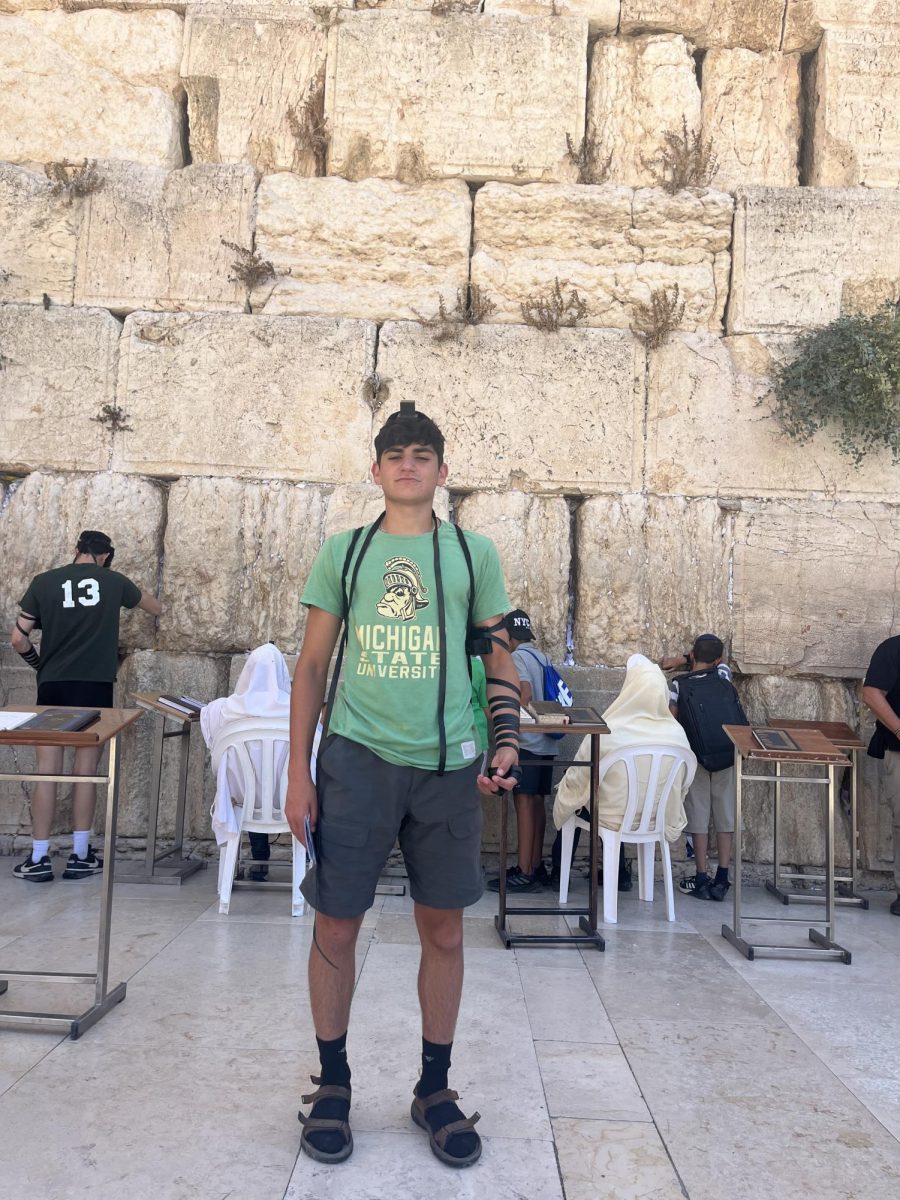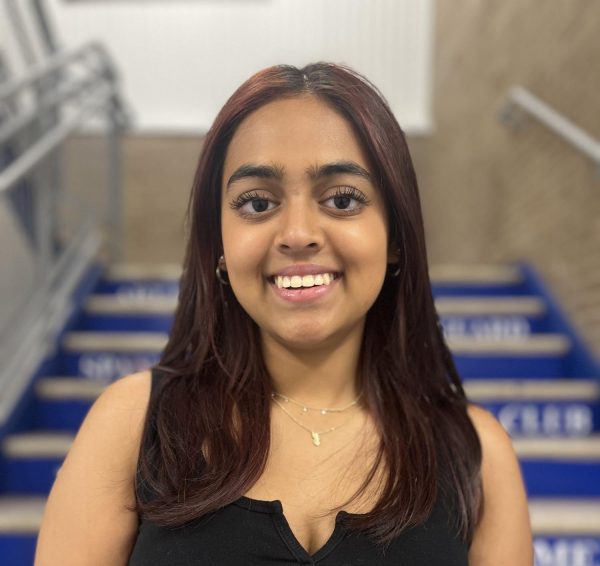On October 7, HAMAS, a Palestinian militant group, attacked the city of Gaza, killing 1,400 Israeli citizens. While this global conflict is occurring overseas, students in Lake Zurich have been impacted.
Since the start of the war in Gaza, over 15,000 citizens living in Gaza, both Israeli and Palestinian, have been killed. Although tensions between Israelis and Palestinians in Jerusalem have been rising for many centuries, the attack two months ago has sparked a new rise of controversy, debate and violence across the world.
Whether they are Israeli or Palestinian, students feel the effect of this conflict in their day-to-day lives. Lucy Kopp, junior, is one such student. As a Jewish student, Kopp has seen the impacts of this war on her family firsthand.
“In 2016 […] there was a rise in anti-Semitism and my mother’s school [that she works at] got a bomb threat, and that was really scary to me. Now with this happening, they’ve had such a rise in security protocols,” Kopp said.

Kopp’s mother works at Jacob Durman Jewish Community Campus (JCC), where Jewish students aged 15 months to five years attend. While her mother works there full-time, Kopp helps with the JCC Elaine Frank Apachi Day Camp. 
“Sometimes I work [at the camp], I [work at] the front desk for birthday parties. [I am] the one letting people in the building and I remember the first time that I did it [after the bomb threat], [my bosses told me that I] have to know everybody that comes into the building. It is definitely scary because I know why it’s happening,” Kopp said.
While there is a distinction between students of Israeli descent and Jewish students, both groups are impacted by this conflict. Similarly to Kopp, Jared Kamin, senior, has been personally impacted by the war. Kamin, however, not only has family in Israel, but friends serving in the Israel Defense Force (IDF).
“[I am] always checking in [on the people I know in Israel]. Every time I come into my house I see my parents [watching] the news and calling or checking in [with family],” Kamin said. “I constantly check my friends’ SnapMap, seeing where they’re stationed. I’m always thinking about it, [it is] always on my mind.”
As Jewish/Israeli students, both Kopp and Kamin have been impacted by this conflict. However, Jewish students are not the only group affected.
The Bear Facts staff, in an effort to present both sides of the issue and how it affects students at LZHS, contacted multiple student sources who are personally connected to the Palestinian perspective. These students have chosen not to comment, and the staff at Bear Facts wishes to respect their privacy. Instead, we will be shedding light on the Palestinian experience using information from online sources. One article published by the National Public Radio (NPR) details the experiences of Palestinian Americans in living Chicago during the war.
Hani Almadhoun, an NPR source who works at the primary relief organization in Gaza, has direct family members in Gaza, and faces the worry that comes with this situation every day.
Almadhoun says his family members are in one apartment building, forced to stay away from windows and sleep under staircases. Almadhoun got in touch with his mother a week into the war, and he says she asked to do a video call so she could see his face, in case it was the last time.
NPR also interviewed Tariq Luthun, a Palestinian American who says that he has been so worried about the conflict that he “barely [has] time to engage in the act of living.”
Similar to Luthun, Kamin says that this war is constantly at the forefront of his mind. Kamin attributes this to the influx of information shared on different social media platforms.
“[It is] always just in the back of my head and my parents head […]. [We are] always tense about the conflict and thinking of what happened [in Gaza],” Kamin said. “[I am] always keeping an eye, scrolling, refreshing. My Instagram feed is pretty much all [about the] conflict. [It is] like you [do not] get a breath of fresh air.”
Kopp, like Kamin, believes that there has been a large amplification of the war on social media, leading to her becoming overwhelmed.
“My Jewish friends […] are posting about [the war on social media] all the time, but [I think that] some people at school [are not] really posting about it,” Kopp says. “[It is] just hard going to school and knowing that I think about this pretty much all day but people at school [are not] necessarily thinking about it. [It is] kind of a weird experience, knowing that [I am] thinking about it and [I am] worried about it [while] other people [are not] thinking about it at all.”
Kamin also believes that the increasing amount of social media posts about this conflict can lead to “fake news” being spread online.
“A way I would summarize this conflict would be ‘the war of misinformation’. When I hear what people are saying on social media, [it is] so mind boggling because three months ago, I was in Israel. When [I] hear people from America talk about what’s going on, [I] know that some of it is not true,” Kamin said. “I think the news, for both sides, is just so misinformed. People love to take sides and make claims that they [cannot] really make when [they are] here, living overseas.”
Not only does social media provide people with a platform to spread false information, but it also opens the door for hate and racism. USA Today shares the story of Mai Kakish, a Palestinian American who typically shares traditional Palestinian recipes on her Instagram page. After the war in Gaza began, Kakish’s comment section filled with “dehumanizing language.” Kakish believes that since the war’s start, “even the word ‘Palestine’ threatens people.”
Outside of social media, both Kopp and Kamin say that they have not personally experienced acts of anti-Semitism towards them, but they have both heard of incidents occurring within Chicago.
“I [do not] really have a Jewish last name and I [do not] really look that Jewish to someone who [is not] Jewish. So, I [have not] really been affected by [anti-Semitism],” Kopp said. “But I know people that have been affected by it and [I am] seeing it on social media all the time. So [it is] definitely just always in the back of my mind and [it is] scary.”
Individuals on both sides of this issue have experienced frightening threats of harm and violence. NPR reports that Almadhound was devastated when he heard about the attack on Palestinian American, Hanaan Shahin, who was severely wounded, and her son, Wadea Al-Fayoume, who was killed, by their landlord in Planfield, Illinois because of their ethnicity. Kamin says some of his family friends, who practice Orthodox Judaism, were chased while walking in Chicago by a person with a Palestinian flag and a taser. Stories like these further display how innocent civilians on both sides are experiencing extreme consequences.
Both Israeli/Jewish and Palestinian people in America are seeing the severe impacts of this war overseas. In order to support those affected, Kamin suggests people become more educated on what truly is occurring.
“[I think] people like to look at the Instagram headlines and the buzzwords they see, [but they should] really look into that,” Kamin said. “With just one simple Google search, you can read an entire article posted by multiple reputable news sources and really read what’s actually going on besides reading an Instagram headline, which may or may not be true and you don’t get the full context behind it. There’s more to the story, which I’ve seen countless times throughout this conflict.”


